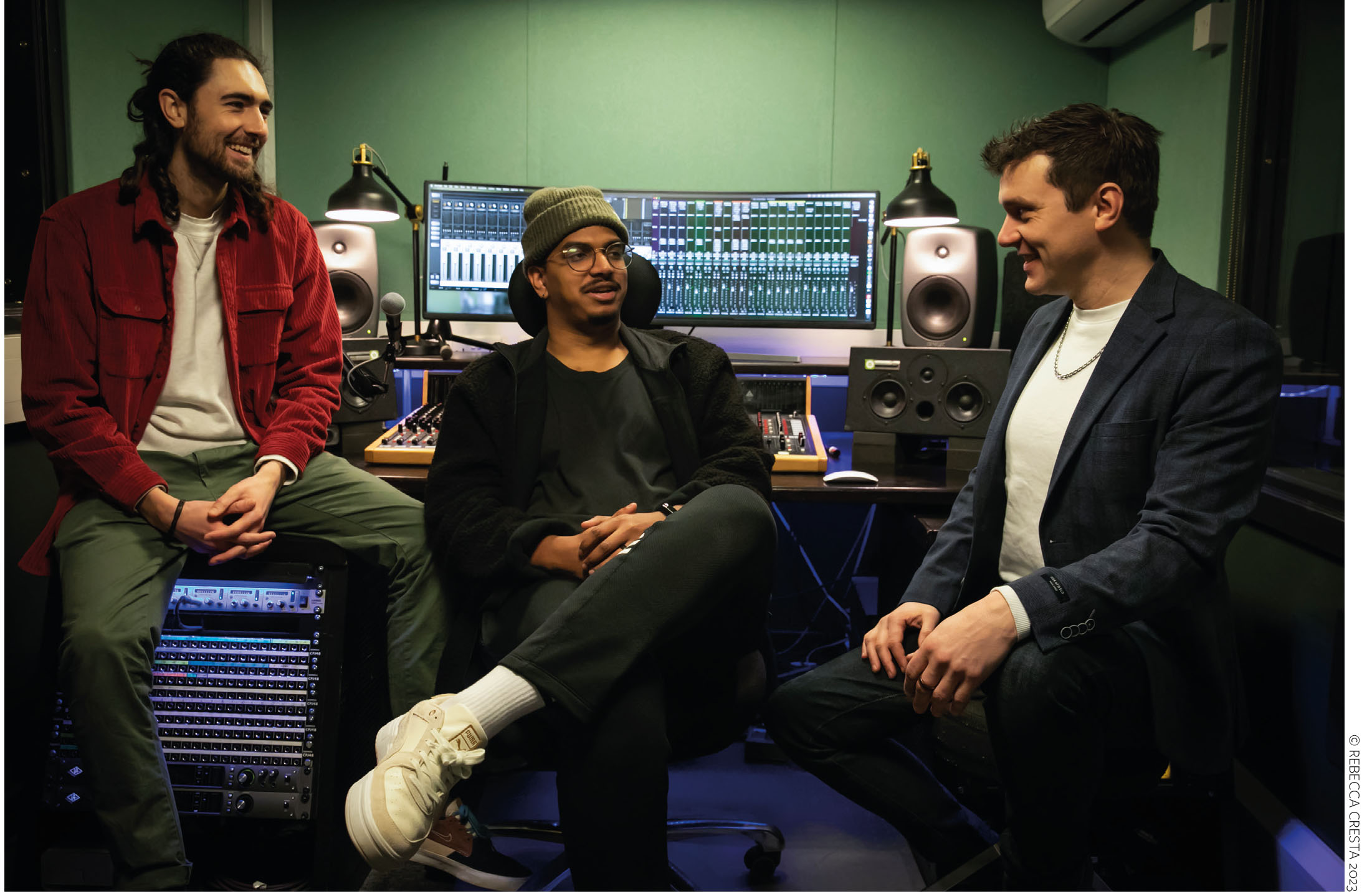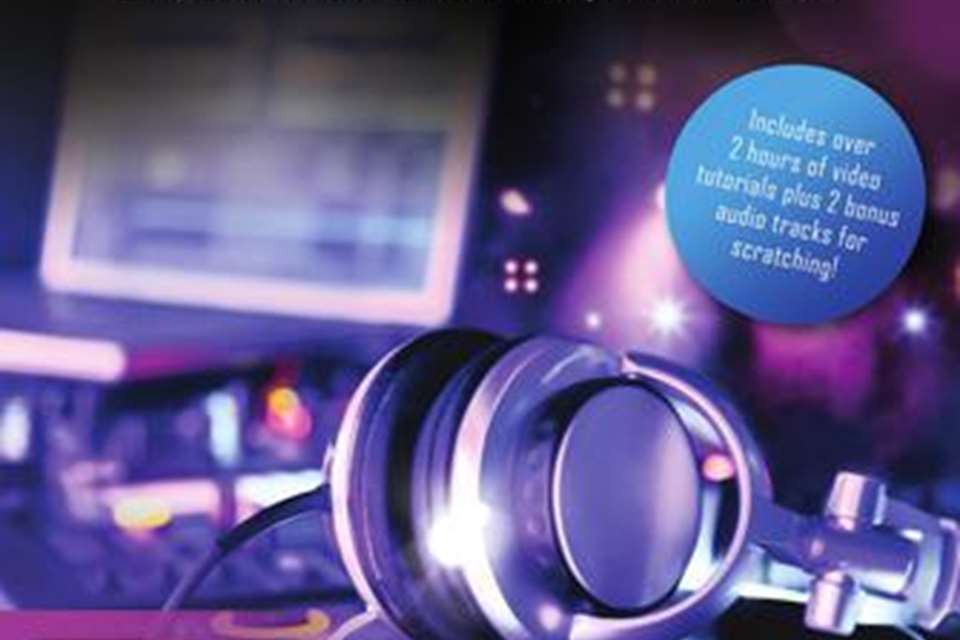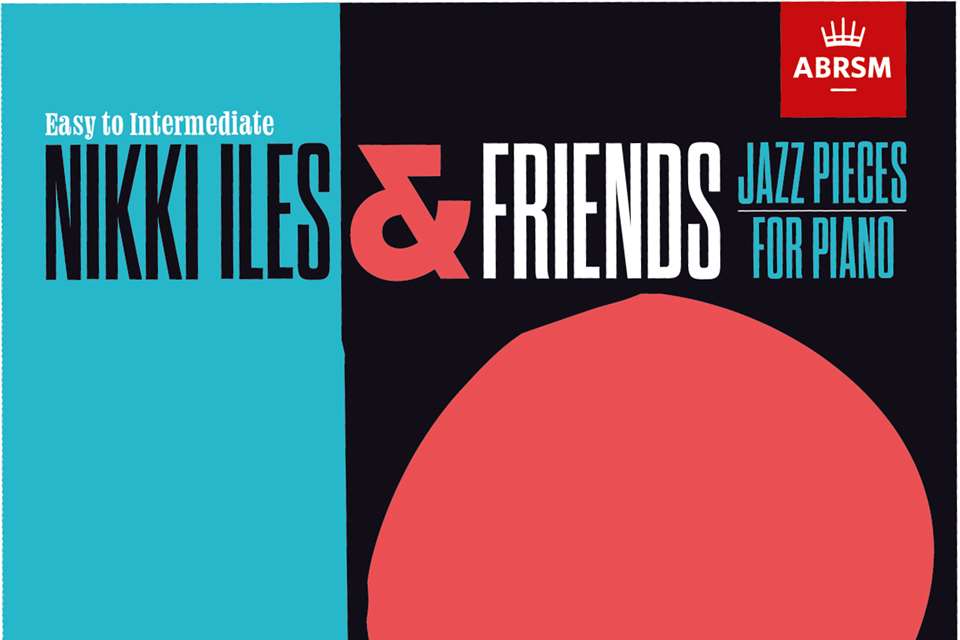Reviews: Crown Lane Studio
John Kelly
Thursday, June 1, 2023
Musician, artist and advocate for disability rights John Kelley reviews the Crown Lane Studio – where he recorded his debut solo album, Better Late Than Never.

As I start to write this article, I’ve just returned from a regular songwriting session at Crown Lane Studio, Morden, Surrey. The studio and café staff are (aptly) just finishing a couple of hours’ training in British Sign Language. It is a great example of what I hoped to get across in my review, namely that access is not just about wider doorways and ramps (although these are very important for me).
I’m now heading to Studio 3, the smaller of three studios, which is ideal for writing, podcasting and vocal work. The biggest access feature here is the raised floor, which allows me to see through the window into the control room. Before Crown Lane, I never had this access, which is important for communicating with the control room and receiving signals. I can even see the studio desk as it records.
When recording, most take this kind of thing for granted; but with lack of access, such barriers can affect communication and, ultimately, how the music turns out. Luckily, this access feature proved an important advantage in the recording process. It is also great for musicians playing from the floor, as again you have a great eye line into the control room.
Background
Over the years I have done a lot of access audits, and the best way to do this, I always found, was to take the access journey through a logical progression, starting literally from my front door and the journey getting there. Then, I would see what I find from the front of the building, working my way inside to the final destination exactly as I might use the building.
To paint this picture, Crown Lane is ideally situated for transport links. It’s right at the end (or beginning, depending on your point of view) of the Northern Line. Unlike many underground stations, this one is accessible – you’d be surprised at how many are still not usable by wheelchair users. If I’m travelling by bus, I couldn’t be dropped off any closer: I get the bus driver to drop the lift literally at the studio’s front door. This door also leads into the Metronome café. From here you can go straight into the studio with level access, however you could stop here first for the most beautiful cakes and sandwiches.
Crown Lane is a compact space. I find that some furniture or equipment moving is needed as I move around the space, but once everything is in place, I can get round the whole building very easily. This is assisted by the doors all having magnetic stops. Moving things around and adapting the space at Crown Lane is never a problem with the staff. This highlights an important point, that access is as much about attitude as it is about the environment.
After 5pm the café and main entrance are closed (apart from when there’s an event on), so the trip into the studio in the evening is slightly more adventurous. You have to go round the back of the building where the driveway (not owned by the studio) is a little bit more of a slalom course as you need to avoid the potholes. After a bit of route planning, I worked out a pretty safe way in. Car parking around the back is a premium. Crown Lane therefore use a retractable-belt barrier on posts positioned to maintain wheelchair access to the rear entrance.
Getting around the studio
Once inside, the thing that strikes you first – apart from the access – is how nice, well-kept and clean the space is. It is a lovely place to work.
A narrow corridor links three studios, a control room, two bathrooms and the all-important congregation area where teas and coffees are available, along with a small fridge and microwave for longer recording sessions.

Crown Lane engineers and producers (L to R) Alexi McNulty-Bakas, Chris Cruz and John Merriman (founder)
Anybody who knows about touch tours used in theatres will have experienced a small-scale model of the stage, made available so that visually impaired audience members can get a sense of the staging and production. Crown Lane has built a replica model of the studio, built lovingly out of Lego (with great accuracy and detail!) by one of the founder-producer’s sons. This really helped me with planning, and also demonstrates that with just a little bit of creativity, access improvements can be a continuous process of development.
Other practicalities
When using technology, my set-up is really important. I like to be able to reach the mixing desk and control this, but at Crown Lane I can even control the heating temperature and lighting as these are on remote control. I can have these on my table and change them without having to ask anyone.
Accessible toilets are always a big consideration as part of my rock ‘n’ roll lifestyle! I have an interesting photograph album full of pictures of potential toilets that I could use, with detailed measurements and locations.
When recording my album, I realised that I would be spending a lot of time in and around the studio, so an accessible bathroom was essential. Crown Lane has always had an accessible bathroom; not the biggest, but you can get a wheelchair user in and the space is adequate to manage. In the past, I had to bring my own hoist. However, a gamechanger was when Crown Lane decided to crowdfund and get a ceiling-track hoist installed. Within six months, local bands (myself included, investing in my future) raised the target figure for the refurbishment. For access, the bar is raised even higher.
Ethical, sustainable
Another important thing about Crown Lane is its overall attitude to the world and local community. All the equipment and leads that are provided are recyclable, repaired or reused. The quality of the equipment and kit available is top class, and there are some beautiful microphones (for those of you who get excited about that sort of thing!). For me, these are just as important as access – it’s nice to work in an environment that is kind to the world, and fits in with my creative practice and wider values as a musician, while using the best equipment.
Addressing access head-on
The team at Crown Lane has really thought about disabled artists having lots of conversations (and, more importantly, listening) with those involved on any given project. One of the best things about recording my album there was the way in which we could go through each step of the process, from rehearsing with a band of artists who all had different needs (personal and artistic) to thinking through how we can get the best sound. Simply talking through things and planning together meant I could concentrate on the music, the most important thing to me when all’s said and done.
If you visit the Crown Lane website, there is a page articulating a level of service beyond ramps and doorways (the physical access features). This page thoroughly documents all that is available in terms of access. You can download a document that highlights everything from tactile signs, accessible fire alarms and door-entry systems, to dementia-friendly layout, quiet spaces and different ways of communicating (including staff trained in BSL). The extent of their ambition is displayed on Crown’s website: ‘Aiming to be the world’s most accessible, sustainable and community focused recording studio’. And their way to achieve this is by constantly reflecting and learning from the experience of users of the studio.
Education offer
Crown Lane is introducing an exciting new education programme that incorporates these values around access, as it engages with artists excited to learn more about their craft. The programme is for anyone over the age of 14 who wants to improve their skills in sound. The ‘Sculpt’ course has access at its heart and comes with a free sample session, video-based content, a downloadable handbook and workbook (written in easy-to-read format), and membership of a growing community, including access to online and in-person events at the studio. Crown Lane is keen to ensure more people who have faced barriers in the industry are given fresh hope as they see this open door.
‘The initial barrier to entry was the website’, says John Merriman, the founder and producer. ‘We rebuilt this, taking the word count down by 90% and ensuring every option is only two clicks away from the homepage. There is also audio description throughout and, uniquely, we have created the course in an evolving format, so in real-time we can respond to feedback to make suggested changes.’
Final thought
Access is definitely not a bolt-on, and when done well it becomes part of the aesthetic of the building and atmosphere. In asking ‘is there anything else we can do to improve access for you?’, we ensure that access is always on the agenda. It’s not just the building; it’s the people. Yes, having a building that you can get around in is important, but attitude and an openness and flexibility are also critical.
The team at Crown Lane is what really makes it a special place. It really supports any recording or life project that I have by asking the right questions. It’s a place with a sense of belonging.
Links and references
Crown Lane access page (with downloadable pdf): crownlanestudio.co.uk/access
Musicians’ Union article: bit.ly/3LqY69w
John Kelly: johnkellymusician.co.uk, linktr.ee/JohnKellyMusician
The Kellycaster guitar: drakemusic.org/technology/instruments-projects/the-kellycaster










